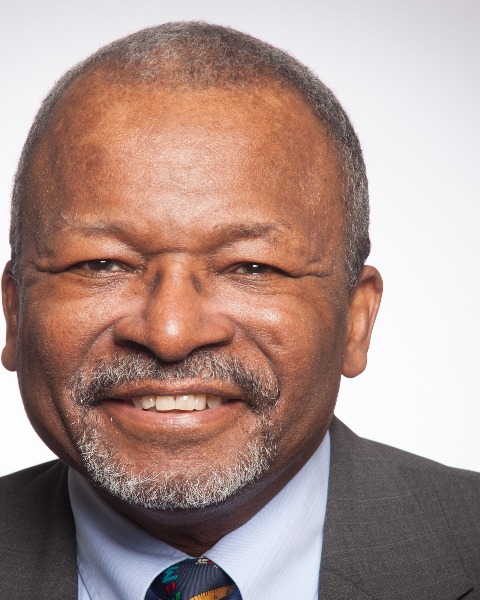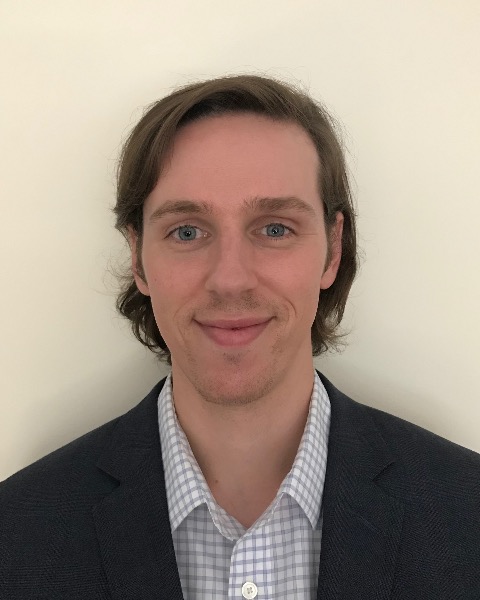
Contingency Management: Critical issues for Successful Adoption
-
Register
- Non-Member - $39
- Regular Member - $29
- Retired - $29
- Early Career Physician - $29
- Resident - $19
- Student - $19
- Associate - $19
- ASAM Staff - Free!
- International Member - $29
- Emeritus Member - $29
- Provisional Member - $29
- Fellow Member - $29
- Honorary Member - $29
- CRT Member - $29

Contingency Management: Critical issues for Successful Adoption
Recorded: Thursday, April 13, 2023 to Sunday, April 16, 2023
On-Demand Session
Overview
This 75-minute on-demand session from the ASAM 54th Annual Conference addresses key legal and regulatory issues associated with Contingency Management.
The Office of the Inspector General of the US Department of Health and Human Services has declared that Contingency Management is an effective treatment for stimulant use disorders. However, it has outlined concerns about monetary incentives, stressing that safeguards against waste, fraud and abuse must be in place. I will review key legal and regulatory issues associated with Contingency Management.
The target audience for this introductory level session includes physicians, nurse practitioners, physician assistants, other clinicians, researchers, residents, fellows, students, and counselors.
This session addresses the following ACGME Competencies: Patient Care and Procedural Skills, Practice-based Learning and Improvement
This session addresses the following IOM Competencies:Provide patient-centered care, Employ evidence-based practice
Learning Objectives
Upon completion, learners will be able to:
- describe the current landscape regarding regulatory and fraud prevention considerations for implementing contingency management.
- describe important training and implementation considerations when providing contingency management as a treatment service.
- describe best-practice considerations regarding incentive amounts and reinforcement schedules when implementing contingency management.
Registration Rates
| Rate Description | Rate |
| ASAM Member | $29 |
| Non-Member | $39 |
| Associate Member | $19 |
| Resident Member* | $19 |
| Student Member* | $19 |
*Residents, Fellows-in-training, Interns, and Students must join ASAM to receive a discounted registration rate. Click here to become an ASAM member. National and Chapter membership dues apply. There is no charge for Students to become a Member, but verification of student status is required.
Membership Question? Call ASAM at 1.301.656.3920, email us, or view the ASAM website for more information.
Refunds & Cancellations
All ASAM e-Learning Center refund requests must be made in writing to education@asam.org within 90 days of purchase. Those requesting refunds for courses that are in progress will receive partial refunds or e-Learning Center credit. Automatic full refunds will be made for any course with a live-course component that has been cancelled.
Registration Deadline: 05/15/2026
Session Instructions
- Click on the Contents tab to watch the on-demand recording.
- Click Complete Post Test to answer multiple choice questions. Participants will have 10 attempts to pass and must answer 4 out of 5 questions correctly.
- Click Complete Evaluation to provide valuable activity feedback. Scroll down on all questions as there may be answer options that expand past the size of the window.
- Click the button Claim Medical Credits in the box titled Claim Credits & Certificate. Choose the type of credit and click submit. Click the button View/Print Certificate to save or print your certificate. You can view/print your certificate at any time by visiting the ASAM eLearning Center, clicking Dashboard, and clicking Transcript/Achievements.
Need Assistance?
For assistance logging in, accessing activities, claiming credit, or for other questions or concerns, please check the FAQ page or e-mail Education@ASAM.org
ASAM is proud to offer Essential Accessibility to ensure our website is accessible and functional for all our learners while providing free assistive technology for people with the widest possible range of abilities.

H. Westley Clark, MD, JD, MPH, DFASAM
Dean's Executive Professor of Public Health
Santa Clara University
H. Westley Clark, MD, JD, MPH is currently the Dean’s Executive Professor of Public Health at Santa Clara University in Santa Clara California. He is formerly the Director of the Center for Substance Abuse Treatment, SAMHSA, U.S. Department of Health and Human Service.
He contributed to the US Surgeon General’s Report on Alcohol, Drug Abuse and Health as a Section Editor for Treatment. He is on the National Advisorry Council of NIAAA. He has served on the National Advisory Council of NIDA. He was a member of the Board of Directors of the non-profit Felton Institute, He was on the Board of Directors of Faces and Voices of Recovery. He was also on the Board of Directors of the Pacific Institute for Research and Evaluation.
He has received numerous awards for his contributions to the field of substance abuse treatment, including: the 2015 Lisa Mojer-Torres Award from Faces and Voices of Recovery, the 2015 James Ralph Memorial Award for Outstanding Public Service from the Black Psychiatrist of America, A 2015 Annual Award, American Society of Addiction Medicine. He was awarded the 2008 John P. McGovern Award from the American Society of Addiction Medicine.
Dr. Clark received a B.A. in Chemistry from Wayne State University; he holds a MD and a MPH from the University of Michigan; where he completed a Psychiatric Residency at University Hospital, Neuropsychiatric Institute. He obtained his Juris Doctorate from Harvard University Law School and completed a two-year Substance Abuse Fellowship at the DVAMC-SF. Dr. Clark received his board certification from the American Board of Psychiatry and Neurology in Psychiatry. He is a Distinguished Fellow of the American Society of Addiction Medicine. He is certified in Addiction Medicine by the American Board of Preventive Medicine. Dr. Clark is licensed to practice medicine in California, Maryland, Massachusetts and Michigan. He is also a member of the Washington, D.C., Bar.
No Relevant Financial Disclosures

Thomas E. Freese
PhD
Thomas E. Freese, Ph.D., received his doctorate degree in clinical psychology from the California School of Professional Psychology in 1995. Dr. Freese is currently the Co-Director of UCLA Integrated Substance Abuse Programs and Co-Director of the SAMHSA-funded Pacific Southwest Addiction Technology Transfer Center (PSATTC, HHS Region 9). Dr. Freese has served as Principal Investigator on numerous projects funded by the California Department of Alcohol and Drug Programs and Department of Health Care Services to train providers in a variety of evidence-based substance use disorder treatment practices (including medications for addiction treatment, SBIRT, contingency management, and motivational interviewing). Dr. Freese has also led several large training and technical assistance projects that assist providers in implementing integrated treatment for co-occurring mental health and substance use disorders.
He has been a featured presenter at conferences and meetings nationally and internationally on the impact and treatment of methamphetamine and opioid dependence. In addition, Dr. Freese has served as the Project Director on a number of studies including research on methamphetamine use. He has worked in the addiction field since 1983, and has developed and conducted trainings in 45 states and internationally, providing training and workshops for clinicians-in-training at the all levels.

Dr. Richard Rawson, PhD
Research Professor/ Professor Emeritus, University of Vermont; University of California, Los Angeles
Richard A. Rawson, Ph.D., is Professor Emeritus at the UCLA Department of Psychiatry and a Research Professor at the Vermont Center for Behavior and Health at the University of Vermont. He received a Ph.D. in experimental psychology from the University of Vermont in 1974. Dr. Rawson conducted numerous clinical trials on pharmacological and psychosocial addiction treatments and extensive system evaluation activities in a number of states and countries. He has led addiction research and training projects for the United Nations, the World Health Organization, the Drosos Foundation and the U.S. State Department, exporting science-based knowledge to many parts of the world. Dr. Rawson has published 3 books, 40 book chapters, and over 250 peer-reviewed articles and has conducted over 1,000 workshops, paper presentations, and training sessions.

Tyler Erath, PhD
Postdoctoral Research Fellow
Vermont Center on Behavior and Health, University of Vermont
Tyler Erath, Ph.D., is a postdoctoral research fellow at the Vermont Center on Behavior and Health, Larner College of Medicine, University of Vermont. He received his Ph.D. in Behavioral Psychology from the University of Kansas in 2021. Dr. Erath’s research is broadly focused on behavioral health and ways to reduce health disparities. In addition to conducting research in community settings, he has extensive experience working with human service organizations as a behavioral consultant. Dr. Erath is currently conducting research on substance use among individuals who participate in a syringe service program and a contingency management intervention for stimulant use disorder among individuals who primarily inject stimulants.
CME, CE, CEU and Other Credit Types

ACCME Accreditation Statement
The American Society of Addiction Medicine is accredited by the Accreditation Council for Continuing Medical Education (ACCME) to provide continuing medical education for physicians.
AMA Credit Designation Statement
The American Society of Addiction Medicine designates this enduring material for a maximum of 1.25 AMA PRA Category 1 Credits™. Physicians should claim only the credit commensurate with the extent of their participation in the activity.
NAADAC, the Association for Addiction Professionals
This activity has been approved by the American Society of Addiction Medicine, as a NAADAC Approved Education Provider, for educational credits. NAADAC Provider #295, ASAM is responsible for all aspects of the programming.
California Association for Drug/Alcohol Educators (CAADE)
This educational program is approved by CAADE: #CP40 999 1225.
California Association of DUI Treatment Centers (CADTP)
This educational program is approved by CADTP: #205.
California Consortium of Addiction Programs and Professionals (CCAPP)
This educational program is approved by CCAPP: #OS-20-330-1224.
Continuing Education Credits (CEUs)
Non-physician participants will receive a certificate of attendance upon completion of the activity and an online evaluation confirming their participation. Participants should submit his/her certificate of attendance to their professional organization/institute.
Maintenance of Certification / Continuing Certification Program
American Board of Preventive Medicine (ABPM)
The American Board of Preventive Medicine (ABPM) has approved this activity for 1.25 credits towards ABPM MOC Part II requirements.
American Board of Anesthesiology (ABA)
This activity contributes to the CME component of the American Board of Anesthesiology’s redesigned Maintenance of Certification in Anesthesiology TM (MOCA®) program, known as MOCA 2.0®.
American Board of Pediatrics (ABP)
Successful completion of this CME activity, which includes participation in the activity, with individual assessments of the participant and feedback to the participant, enables the participant to earn 1.25 MOC points in the American Board of Pediatrics’ (ABP) Maintenance of Certification (MOC) program. It is the CME activity provider’s responsibility to submit participant completion information to ACCME for the purpose of granting ABP MOC credit.
American Board of Internal Medicine (ABIM)
Successful completion of this CME activity, which includes participation in the evaluation component, enables the participant to earn 1.25 Medical Knowledge MOC points in the American Board of Internal Medicine’s (ABIM) Maintenance of Certification (MOC) program. Participants will earn MOC points equivalent to the amount of CME credits claimed for the activity. It is the CME activity provider’s responsibility to submit participant completion information to ACCME for the purpose of granting ABIM MOC credits.
American Board of Surgery (ABS)
Successful completion of this CME activity, which includes participation in the evaluation component, enables the learner to earn credit toward the CME and/or Self-Assessment requirements of the American Board of Surgery’s Continuous Certification program. It is the CME activity provider's responsibility to submit learner completion information to ACCME for the purpose of granting ABS credit.
American Board of Psychiatry and Neurology (ABPN)
Successful completion of this CME activity can be used to satisfy the American Board of Psychiatry and Neurology’s (ABPN) CME requirement for Maintenance of Certification program.
American Board of Addiction Medicine (ABAM)
Successful completion of this activity can be used to satisfy the American Board of Addiction Medicine (ABAM) for Tmoc as credits towards ABAM LLSA Part II requirements.
Royal College of Physicians and Surgeons of Canada (RCPSC)
Royal College Fellows can use participation in Accredited Continuing Medical Education to earn Section 3 Credits.
Disclosure Information
In accordance with disclosure policies of ASAM and the ACCME, the effort is made to ensure balance, independence, objectivity, and scientific rigor in all CME/CE activities. These policies include mitigating all possible relevant financial relationships with ineligible companies for the Planning Committees and Presenters. All activity Planning Committee members and Presenters have disclosed relevant financial relationship information. The ASAM CE Committee has reviewed these disclosures and determined that the relationships are not inappropriate in the context of their respective presentations and are not inconsistent with the educational goals and integrity of the activity.

